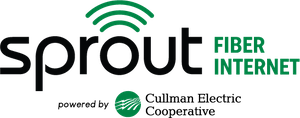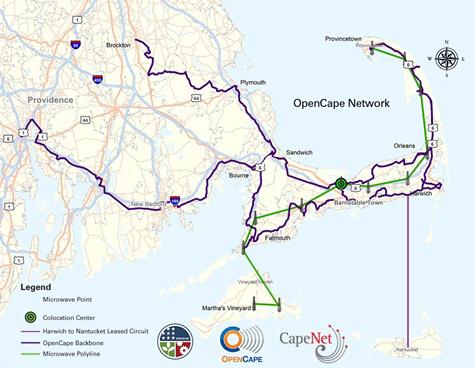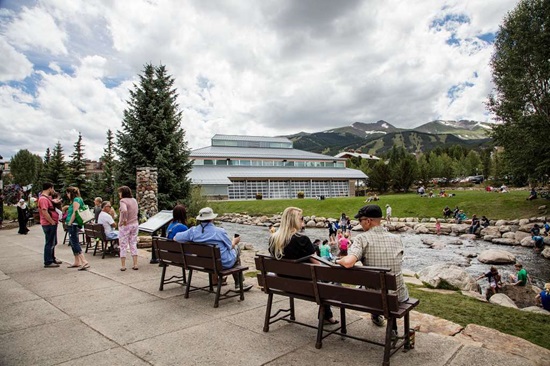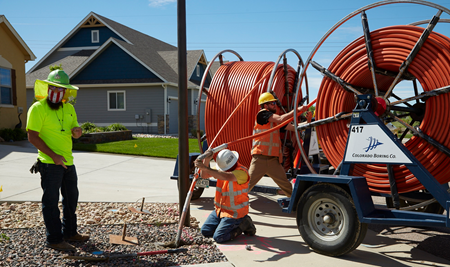
Fast, affordable Internet access for all.

UTOPIA Fiber has completed its fourth major broadband deployment of 2023, with the finished construction of a $23.5 million citywide fiber-to-the-home (FTTH) build in Syracuse, Utah (est. pop. 33,000).
Network construction began November 30, 2021, and its first customer was connected on September 12, 2023. UTOPIA officials say the new Syracuse network passes 12,324 residential addresses, and has already reached a nearly 16% subscriber take rate in the city.
UTOPIA, shorthand for Utah Telecommunication Open Infrastructure Agency, is a collaboration between 11 Utah cities that joined together in 2004 to build, deploy and operate a fiber network that reaches every last home and business in its territory. Since 2009, UTOPIA’s expansion has been funded entirely by subscriber revenues.
Despite some early lawsuits by regional monopolies like Qwest (now Centurylink/Lumen) designed to kill the project before it could get a foothold, UTOPIA has not only survived but thrived, and its success has been transformative for large swaths of the Beehive State.
Syracuse – like many U.S. communities – had been consistently underserved by a duopoly of Comcast and Centurylink (Lumen). That lack of competition consistently results in sluggish, expensive, spotty broadband service, and substandard customer service. Now, locals have access to a variety of far more affordable options thanks to a menu of UTOPIA partner ISPs.
Knoxville, Tennessee's Knoxville Utility Board (KUB) says it has completed the first phase of its ambitious broadband deployment, bringing affordable fiber access to more than 50,000 premises in this city of 192,000 – many for the very first time.
When we last wrote about KUB back in 2021, the city's utility had just received approval to build what will eventually be the biggest municipal broadband network in the U.S.
All told, the $702 million project, known as KUB Fiber, aims to deliver affordable fiber to 210,000 households across KUB’s 688-square-mile service area, taking between seven and ten years to complete.
KUB says that the first phase of fiber deployment involved the installation of more than 1,100 miles of fiber infrastructure. Upgraded users have the option of three tiers of service: symmetrical gigabit per second (Gbps) service for $65 a month; symmetrical 2.5 Gbps service for $150 a month; and symmetrical 10 Gbps service for $300 a month.
KUB’s service tiers do not come with usage caps or long-term contracts. Unlike many municipal operations, KUB is also offering locals the option of bundling television service.
KUB was driven to expand access after more than a decade of local frustration at the slow speeds, high prices, and spotty coverage caused by a notable lack of competition between regional telecom monopolies, AT&T and Comcast (Xfinity). Both companies have attempted to lock down customers via long-term contracts ahead of the network’s completion.
As one local resident said:
“Comcast thanked me for being a customer for 23 years, but it's not because I've had the option to go anywhere else. They have had 23 years to fix these problems and they haven't."
Cullman, Alabama-based Cullman Electric Cooperative says it is launching a new phase of fiber deployment after receiving a $7 million grant to bring affordable fiber access to long-neglected Cullman and Winston counties.
The financing was made possible by the Alabama Broadband Accessibility Fund (ABAF), funded by the 2021 American Rescue Plan Act (ARPA). The state has already dedicated more than $82 million in funding for Alabama broadband deployments, bringing broadband access to 72,000 currently unserved residents.

Cullman’s $7 million portion will bring affordable fiber access to 1,300 families. Known as Sprout Fiber Internet, Cullman currently offers residential customers symmetrical 300 Mbps (megabit per second) service for $60 a month; symmetrical 1 Gbps (gigabit per second) service for $80 a month, and symmetrical 2 Gbps service for $120 a month.
That’s significantly faster and cheaper service than is currently offered by any of the dominant private telecom monopolies in Cullman (predominantly AT&T or Charter/Spectrum), without usage caps, hidden fees, or long-term contracts.
A plan in Jamestown, New York to deploy affordable fiber to every last city resident has received welcome support from state leaders, even though deployment details remain murky and network construction remains well over the horizon.
In 2021, Jamestown officials told ILSR they were working with Entrypoint Networks on a $25 million fiber network for the city of 28,000. The city hopes to deliver fiber in conjunction with the Jamestown Board of Public Utilities, leaning heavily on the federal Affordable Connectivity Program (ACP) to ensure low cost access to marginalized and low income communities.

The city’s plans got a needed attention boost last month when Empire State Development – tasked with boosting economic development across New York State – gave a nod to Jamestown’s efforts in the organization’s five-year development plan.
The plan, among other things, will shape how the state utilizes $664 million in federal subsidies made possible by the Broadband Equity Access and Deployment (BEAD) Program and the 2021 infrastructure bill. While Jamestown may qualify for BEAD funding, how much the city’s project could receive remains undetermined.
Both the Sagamore Bridge and Railroad Bridge that span opposite ends of the Cape Cod Canal carry the kind of traffic that terrifies Comcast and Verizon.
The 576 count fiber-optic strand strung across the Railroad Bridge in Buzzards Bay – and the 864 strand that crosses the Sagamore Bridge – belongs to OpenCape, an open-access “middle mile” network ushering the gold-standard of Internet connectivity into parts of each of the Cape’s 15 towns.
It’s an extension of OpenCape’s fiber network, lashed to utility poles in dozens of communities across southeastern Massachusetts, all of which connect the region to the nation’s Internet backbone/long haul network.
Middle mile networks are a key part of the Internet’s connective tissue that dramatically lowers the cost for Internet service providers (ISPs) to deploy “last mile” connections to individual homes and businesses.
Thanks to a federal grant courtesy of the American Recovery and ReInvestment Act, the nonprofit fiber network was established in 2009 and since then has been providing Internet connectivity to most of the region’s anchor institutions – hospitals, public safety facilities, numerous libraries, schools, banks, and dozens of other enterprise clients with big data needs such as the Marine Biological Laboratory and the Woods Hole Oceanographic Institution in Falmouth.

Over the past several years OpenCape has deployed fiber deeper into the region, expanding the network from an initial 350 miles to 650 miles of fiber today, serving a growing number of Main Street businesses across the Cape.
Fort Worth, Texas, (est pop. 956,000) has struck a $7.5 million, 34-year contract with Dallas-based Sprocket Networks to construct a new 300-mile fiber optic backbone to shore up city municipal communications needs, expand affordable access to marginalized neighborhoods, and boost local economic development.
City officials say construction crews are expected to begin work sometime in the next three to six months, with the full network construction expected to cost $65 million and take three years to complete.
Services will first be made available to nine target neighborhoods (including Las Vegas Trail, Como, Marine Creek, Stop Six, Rosemont and Ash Crescent) on a rolling basis. Sprocket Networks will own the finished fiber network.
“This partnership was entered into with Sprocket with the hopes of eventually getting to universal service in Fort Worth,” Fort Worth IT Solutions director Kevin Gunn told ILSR in a phone interview. “We want the gold standard fiber optic connectivity: 100 megabits symmetric and up available at every doorstep, whether that's a senior family, multifamily or commercial.”
Gunn told ILSR that the city’s initial payment of $7.5 million to Sprocket consists of $4.5 million in American Rescue Plan Act (ARPA) funds, and $3 million from the North Central Texas Council Of Governments, which has allocated some of its transportation budget to broadband improvements the agency will benefit from.
In response to COVID era broadband inequities, the city of Fort Worth last year expanded free Wi-Fi access to 40,000 largely underserved city residents. Gunn indicated that those connections will be slowly phased out as the city transitions to fiber.

This week on a special edition of the podcast, join us as we begin with a discussion with local leaders from East Carroll Parish, Louisiana. First Featured on ILSR's Building Local Power podcast, this first segment reveals the hurdles the leaders faced with expensive and inadequate broadband service.
Despite resistance from a regional monopoly provider, their grassroots efforts to enhance Internet access triumphed. Explore with them on how they overcame obstacles and misleading data that was hindering competition.
Lest you think the situation in East Carroll Parish wasn't that bad, in the second segment we journey back to a 2014 episode of the Community Broadband Bits podcast. Christopher and Lisa parody the (based-on-real-life!) experience of trying to talk to the customer service of Big Cable companies, maybe hitting a little too close to home.
This show is 41 minutes long and can be played on this page or via Apple Podcasts or the tool of your choice using this feed.
Transcript below.
We want your feedback and suggestions for the show-please e-mail us or leave a comment below.
Listen to other episodes or view all episodes in our index. See other podcasts from the Institute for Local Self-Reliance.
Thanks to Arne Huseby for the music. The song is Warm Duck Shuffle and is licensed under a Creative Commons Attribution (3.0) license.
Blue River, Colorado (est. pop. 882) is the latest Colorado municipality to explore building its own broadband network with an eye on affordable access. The town is part of a trend that’s only accelerated since the state eliminated industry-backed state level protections restricting community-owned broadband networks.
Just south of Breckenridge in the central part of the state, Blue River is nestled in one of the more rural parts of Summit County. Comcast (Xfinity) enjoys a broadband monopoly, resulting in spotty access, slow speeds, and high prices. Locals also routinely complain that cell phone service remains spotty in much of the mountainous area.
In response, town leaders recently hired the consulting firm, NEO Connect, to explore the possibility of building a town-wide fiber network. According to a feasibility study presented to the Blue River Board of Trustees by Mayor Toby Babich, the construction of a fiber network serving every town resident will cost somewhere in the neighborhood of $13 million.

While that “may seem out of reach,” Babich recently told the board, “we believe with the right funding and partnership we can move forward with this project.”
The estimates for network construction range somewhere between $7 million to $24 million, depending on how much underground trenching work is required.
Pikeville, Kentucky (pop. 7,300) sits about 150 miles southeast of Lexington, in the extreme eastern part of the state. Today, after almost a decade of fighting with Internet Service Provider (ISP) Optimum about service so consistently poor that the city finally sued the provider, it’s working on an alternative: a partnership that will see the local government build new citywide fiber infrastructure and lease it to an operating partner.
A Tale As Old As Time
Publicly available data shows that, historically, about two-thirds of the city of Pikeville can take Internet service from Inter Mountain Cable - a regional provider with about 25,000 subscribers across Kentucky, West Virginia, and Virginia. Likewise, Optimum (formerly Suddenlink) offers cable service to about the same number of households. AT&T’s DSL service covers a little more than a quarter of town. Those living in the northern half of the city generally have better service options than those living in the southern half.

The path the city of Pikeville has taken began almost 15 years ago. In 2009, the local government signed a new, 10-year franchise agreement with Suddenlink. But when Altice (originally a French telecommunications company) bought Suddenlink back in 2015 to build its portfolio here in the United States, things quickly took a turn for the worse.
As Loveland, Colorado’s municipal broadband network continues to rack up industry accolades on its path to providing world-class high-speed Internet service, the city is now celebrating another important milestone.
Last week, Pulse Fiber officials announced that construction of its community-owned broadband network is now complete with every household and business in this city of 77,000 now having access to affordable gig-speed service.
The $110 million construction project, which began in earnest only four years ago, is the largest capital project in the city’s history, reaching the finish line on time and on budget, city officials said.
In a press announcement Steve Adams, Loveland’s City Manager, captured the meaning of the moment:
“As we celebrate the successful conclusion of this historic project, Pulse stands as a shining example of what is possible when the community unites to pioneer innovative, collaborative solutions. We did this for ourselves, and we made it happen together.”
“This infrastructure has been designed and built with future generations in mind, ensuring Loveland remains at the forefront of modern, robust, and future-proof Internet delivery,” Pulse Broadband Manager Brieana Reed-Harmel added.

Pulse officials candidly acknowledged that the pathway to the leading edge of Internet connectivity wasn’t easy, as the city had to navigate network construction through a global pandemic, supply chain disruptions, and inflation. But despite those challenges, Pulse Fiber has deployed 631 miles of conduit and over 1,300 miles of fiber throughout the city.